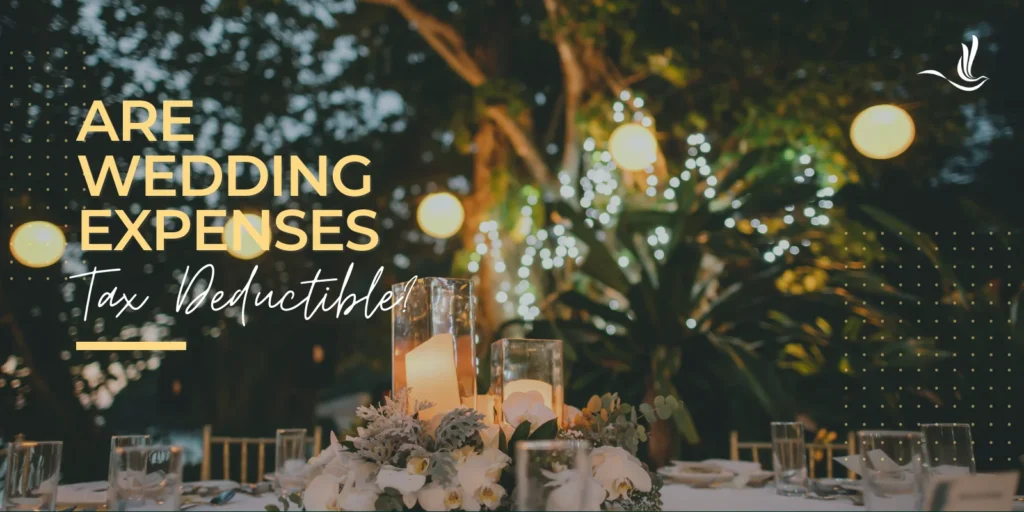
Weddings are significant life events, often accompanied by substantial expenses. As couples plan their big day, a common question arises: can any of these costs reduce their tax liability? While most wedding expenses are considered personal and thus not tax-deductible, there are some exceptions where careful planning could yield tax benefits.
General Rules for Tax Deductibility
The IRS allows deductions for expenses that are “ordinary and necessary” in the context of generating income or for certain charitable contributions. Personal expenses, however, are generally non-deductible. Weddings, being celebratory and personal by nature, fall under the non-deductible category. However, some aspects of a wedding may align with deductible categories, such as charitable giving.
Specific Wedding Expenses That May Be Deductible
Knowing what qualifies can help couples make informed decisions and potentially save money during this milestone event.
Venue Selection in a Charitable Context
If your wedding venue is a religious institution or nonprofit organization, you might be able to deduct part of the fees or donations made to use the space. For example, if you’re married in a church and pay a fee or make a donation to reserve the venue, that amount may be partially deductible, assuming no goods or services are provided in return.
If you choose to hold your wedding or reception at a historic garden, museum, homestead, or even a state or national park, the fees you pay might be tax-deductible as charitable donations. Many such venues are operated by nonprofit organizations. To confirm, check with the site representative about the tax-deductibility of your payment. Note that any portion of the fee paid in exchange for services, such as catering or event setup, typically will not qualify as a deductible donation.
Consider a scenario where a couple donates $2,000 to their church, with $1,500 explicitly earmarked as a contribution and $500 covering event-related services. The $1,500 could qualify as a charitable deduction, while the remaining $500 would not.
Charitable Contributions
One other way to potentially claim a deduction is through charitable contributions related to the wedding. For instance, if you donate leftover food to a qualified charitable organization, the value of the food may be deductible. Similarly, donating wedding flowers to a hospital or nonprofit after the event could also qualify. To claim these deductions, you’ll need to:
- Donate to a recognized 501(c)(3) organization.
- Obtain a receipt or acknowledgment from the organization.
- Document the fair market value of the donated items.
For example, imagine a couple donates $500 worth of leftover food and floral arrangements to a local shelter. By doing so, they could potentially claim this amount as a charitable deduction on their tax return, provided all documentation requirements are met. However, the tax deduction you can claim may be lower than your original purchase price, since it’s calculated using the items’ fair market value when you made the donation.
Tax Implications of Wedding Gifts
While wedding expenses themselves are generally non-deductible, it’s essential to consider the tax implications of wedding gifts.
Receiving Wedding Gifts
As the recipient of monetary or property gifts, you are not required to pay taxes on these amounts. For example, if relatives gift you $25,000 to help cover wedding expenses, this amount is not considered taxable income for you. However, the giver should be mindful of annual gift tax exclusions, which currently stand at $19,000 per individual (as of 2025). Amounts exceeding this threshold may require the giver to file a gift tax return.
Giving Wedding Gifts
If you are the one giving substantial gifts to the couple, you should be aware of the same annual exclusion limits. For instance, gifting $50,000 to a newlywed couple may require filing a gift tax return for the amount exceeding $38,000 ($19,000 per recipient). While this may not result in immediate tax liability, it reduces the lifetime gift and estate tax exemption.
What to Watch Out For
Misclassifying wedding expenses as deductible can lead to audits and penalties. It is critical to understand the IRS’s strict rules and maintain detailed records to substantiate any deductions claimed. Couples should also be cautious about advice suggesting overly aggressive tax strategies, as these may not hold up under scrutiny. Consulting a tax professional can help you navigate these rules and ensure compliance. They can evaluate your specific situation to identify legitimate deductions without risking penalties.
Tax Help for Married Couples
While weddings are generally personal and non-deductible events, there are limited opportunities to claim tax benefits through charitable contributions or business-related expenses. Proper documentation and adherence to IRS rules are essential for claiming these deductions. By understanding these nuances, you can maximize potential savings while staying within the bounds of the law. For any complex scenarios, seek guidance from a tax professional to avoid costly mistakes. Optima Tax Relief is the nation’s leading tax resolution firm with over a decade of experience helping taxpayers with tough tax situations.
If You Need Tax Help, Contact Us Today for a Free Consultation